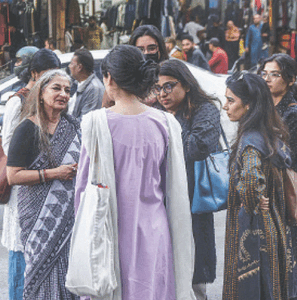KARACHI: The prolonged social restrictions imposed due to Covid-19 pandemic have greatly affected mental health across the globe, causing a significant increase in psychological illnesses, noted speakers at a webinar organised by Ziauddin University (ZU) on Monday.
The event was the first of a live interactive series titled ‘Impact of Covid-19 on mental health’.
Sharing data on the rise in mental health illnesses during the pandemic, Dr Afzal Siddiqui, consultant psychiatrist at Camden Primary Care, part of Mental Health Network in London, said, “It’s a completely different world we live in today and the socio-economic impact of the pandemic has a correlation with a growing number of mental health illnesses.
“According to a survey results collected from different parts of the world during lockdowns showed that anxiety increased from 6.33 per cent to 50.9pc, depression from 14.6pc to 48.3pc, post-traumatic stress disorder from 7pc to 53.8pc and psychological distress from 34.43pc to 38pc,” he added.
Explaining how changed socio-economic conditions are affecting mental well-being, Dr Siddiqui said the dynamics of being a professional at this time had changed completely.
“A high rate of staff sickness is leading to a gap in service provision and to staff redeployment in unfamiliar acute services. Also, the new risk to physical health, threats to survival and encounters with death is leading directly to higher levels of fear and anxiety, which challenge the ability to think.”
He emphasised that organisations should understand the impact of working during a pandemic on employees and try to address work-related stress and ways to alleviate stress in the workplace.
According to him, there are three core symptoms of depression and anxiety. “A depressed mood, lack of pleasure and interest in things one usually enjoys and feeling decreased amounts of energy for longer than two weeks. It can also include feelings of guilt, loss of self-esteem, sleeping difficulties and changes in appetite.”
Shedding light on management of mental health, Dr Pia Ghosh, consultant psychiatrist at Vincent Square Central & North West London Trust, said it had been understood that a patient had a higher chance of recovery, if he or she had a strong bonding with his/her psychiatrist.
“Psychological therapies are going on but in a virtual way. Self-help tools of mental illness include quitting drinking and smoking and physical activities. Eat well, sleep well, connect with friends and family (virtually), be kind and compassionate with yourself and others because the more we invest in our own mental health now the more resilient it will be for the years to come.”
Poor mental health, she pointed out, had also affected clinical practices as many doctors and nurses experienced high anxiety, depression and symptoms of post-traumatic disorders in quite unusual, difficult and challenging circumstances.
Prof Rubina Hussain also spoke.
Published in Dawn, February 3rd, 2021

































